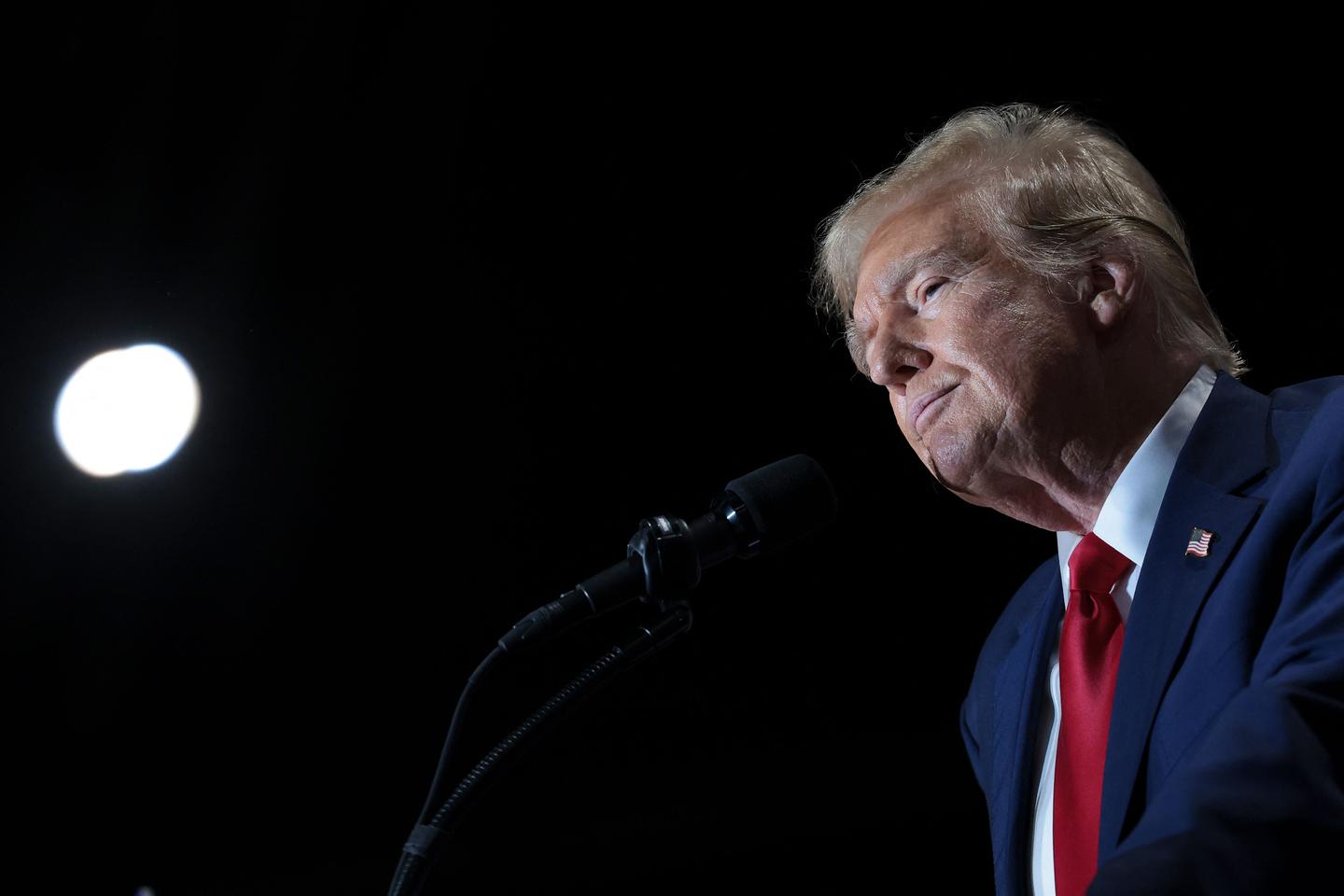


The Supreme Court on Monday, March 4, restored Donald Trump to 2024 presidential primary ballots, rejecting state attempts to hold the Republican former president accountable for the Capitol riot. The justices ruled a day before the Super Tuesday primaries that states, without action from Congress first, cannot invoke a post-Civil War constitutional provision to keep presidential candidates from appearing on ballots.
The outcome ends efforts in Colorado, Illinois, Maine and elsewhere to kick Trump, the front-runner for his party's nomination, off the ballot because of his attempts to undo his loss in the 2020 election to Democrat Joe Biden, culminating in the January 6, 2021, attack on the Capitol. Trump's case was the first at the Supreme Court dealing with a provision of the 14th Amendment that was adopted after the Civil War to prevent former officeholders who "engaged in insurrection" from holding office again.
Colorado's Supreme Court, in a first-of-its-kind ruling, had decided that the provision, Section 3, could be applied to Trump, who that court found incited the Capitol attack. No court before had applied Section 3 to a presidential candidate.
Both sides had requested fast work by the court, which heard arguments less than a month ago, on February 8. The justices seemed poised then to rule in Trump's favor. Trump had been kicked off the ballots in Colorado, Maine and Illinois, but all three rulings were on hold awaiting the Supreme Court's decision.
The case is one of several involving Trump directly or that could affect his chances of becoming president again, including a case scheduled for arguments in late April about whether he can be criminally prosecuted on election interference charges, including his role in the January 6 Capitol attack. The timing of the high court's intervention has raised questions about whether Trump will be tried before the November election.
The arguments in February were the first time the high court had heard a case involving Section 3. The two-sentence provision, intended to keep some Confederates from holding office again, says that those who violate oaths to support the Constitution are barred from various positions including congressional offices or serving as presidential electors. But it does not specifically mention the presidency.
Conservative and liberal justices questioned the case against Trump. Their main concern was whether Congress must act before states can invoke the 14th Amendment. There also were questions about whether the president is covered by the provision.
The lawyers for Republican and independent voters who sued to remove Trump's name from the Colorado ballot had argued that there is ample evidence that the events of January 6 constituted an insurrection and that it was incited by Trump, who had exhorted a crowd of his supporters at a rally outside the White House to "fight like hell." They said it would be absurd to apply Section 3 to everything but the presidency or that Trump is somehow exempt. And the provision needs no enabling legislation, they argued.
Trump's lawyers mounted several arguments for why the amendment can't be used to keep him off the ballot. They contended the January 6 riot wasn't an insurrection and, even if it was, Trump did not go to the Capitol or join the rioters. The wording of the amendment also excludes the presidency and candidates running for president, they said. Even if all those arguments failed, they said, Congress must pass legislation to reinvigorate Section 3.
The case was decided by a court that includes three justices appointed by Trump when he was president. They have considered many Trump-related cases in recent years, declining to embrace his bogus claims of fraud in the 2020 election and refusing to shield tax records from Congress and prosecutors in New York.
